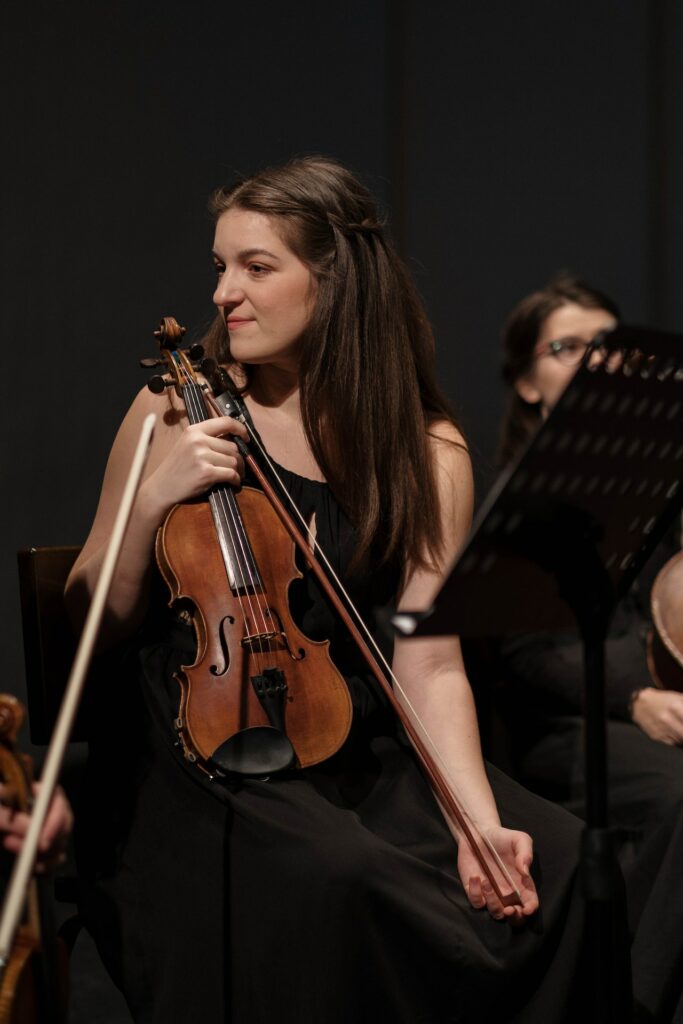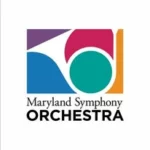Mission and Values
To provide musical performances and programs that educate and entertain while enhancing the cultural environment of Western Maryland and the surrounding region.
Maryland Symphony Orchestra Mission Statement
Providing Music for Everyone: Enriching Lives, Connecting People, and Building Stronger Communities.
History Of the MSO
Since its founding in 1982, the Maryland Symphony Orchestra’s influence and reputation has reached far beyond Western Maryland. It is one of only four professional symphony orchestras in Maryland and audience members from South Central Pennsylvania, West Virginia’s Eastern Panhandle, the Shenandoah Valley of Virginia and the Baltimore-Washington Metropolitan area are drawn to concerts held at the historic Maryland Theatre in downtown Hagerstown. Under the baton of Music Director Elizabeth Schulze—whom the Washington Post calls “a superb conductor”—the MSO has become a first-class orchestra of exceptional artistic quality.
The Maryland Symphony Orchestra provides a dazzling variety of programs, from the grand musical treasures of the Masterworks Series to the joyful offerings of the MSO Pops! and Home for the Holidays; from the glorious sentimentality of the Salute to Independence Concert to the exuberance and wonder of the annual Youth Concerts and Kinder Konzerts Series.
Barry Tuckwell, Music Director for the MSO’s first seventeen seasons, provided a solid foundation for the orchestra, bringing musical masterpieces to life for many who were unfamiliar with the beauty of classical music. Under the artistic leadership of current Music Director Elizabeth Schulze, new concerts and programs have been added and the repertoire has both broadened and deepened. By keeping in mind its mission – “to provide musical performances and programs that educate and entertain while enhancing the cultural environment of Western Maryland and the surrounding region” – the Maryland Symphony Orchestra remains one of the area’s greatest treasures.

The Making of the MSO
If ever there was a miracle, the Maryland Symphony Orchestra is it. This upstart arts organization was fighting against all odds. Inaugurated during an economic recession in 1982 and established outside of a metropolitan area, the MSO was not given much of a chance to succeed — but succeed it did.
In the winter of 1982, a group of dedicated, civic-minded individuals came together with a dream of creating a professional symphony orchestra based in Hagerstown that would serve residents of the four-state area. They were determined to sell season tickets, hire a world renowned horn player as the music director and raise funds to support a full-size, fully professional symphony orchestra. Despite the odds, this was accomplished in eight short months. At 8 o’clock on Saturday, November 13, 1982, Maestro Barry Tuckwell raised his baton and 55 musicians began to play Berlioz’s Carnaval Romaine (Roman Carnival) to a packed house of 1,400 subscribers at the “newly renovated” Maryland Theatre.
From its beginnings through the conclusion of its sixteenth season in 1997-1998, artistic leadership was provided by Barry Tuckwell who was an internationally acclaimed horn virtuoso. Elizabeth Schulze, formerly associate conductor of the National Symphony Orchestra, became music director of the MSO in the 1999-2000 season.
Just four classical concerts were performed in its inaugural season. Today, programming has grown to include ten classical concerts, an “MSO Premium Pops!” concert, two “Home for the Holidays” concerts, and regional concerts at Frostburg State University and the Garrett Lakes Arts Festival. Members of the MSO also present small ensemble performances at numerous regional events and for residents of area retirement centers through our “Community Ensembles” outreach initiative funded by the Maryland Symphony Orchestra’s Music & Well-Being Society.
The mission of the Symphony is to “provide musical performances and programs that educate and entertain while enhancing the cultural environment of Western Maryland and the surrounding region.” It should be noted that the word educate intentionally appears first in the mission statement. Indeed, the MSO is a performing arts organization that brings the incredible joy of music and classical masterpieces to the region; however, since the beginning there has been an ongoing commitment to music education programs and outreach initiatives.
Approximately 10,000 children are served annually through these music education programs. Through a partnership with Carnegie Hall, nearly 7,000 elementary school students are able to travel to the Maryland Theatre to experience the annual youth concerts every spring at no charge. Additionally, the “Ensembles in the Schools” program brings some of the small ensembles (brass, strings, woodwinds) into schools across the region to inspire young people and expose them to classical music. Other programs for youth include Master Classes, Symphony Saturdays, Kinder Konzerts, and Storytime programs in the local libraries.
During the 35th anniversary season, a new logo and branding was unveiled and was paired with exciting special events and concert experiences to attract and inspire the next generation of concertgoer. In September 2018, the orchestra made its recording debut, working alongside a Grammy-nominated team of production engineers and Grammy Award-winning guitarist Sharon Isbin to record Chris Brubeck’s “Affinity: Concerto for Guitar & Orchestra” at the Strathmore Music Center in Bethesda, Maryland. The MSO and Ms. Isbin gave the world premiere of “Affinity” in April of 2015, and the MSO’s premiere performance of this work has since been played multiple times on the American Public Media show “Performance Today,” which reaches 300 NPR stations for 1.2 million listeners.
Change is inevitable in the lifecycle of any organization; however, the COVID-19 pandemic had a profound impact on arts organizations close to home and around the world. Despite the inability to perform for live audiences, the orchestra remained committed to its core values and was determined to provide a level of quality that would continue to exceed concertgoers expectations. During the COVID shutdown, the orchestra quickly pivoted to deliver many concert performances live from the Maryland Theatre on “MSO Live!,” a digital streaming platform that was available on over 1,000 devices.
As concerts resumed for in-person attendance at the newly renovated Maryland Theatre Performing Arts Center, a new chapter began. Today, the organization is focused on rebuilding audiences in a post pandemic world, performing and commissioning new works by 21st century composers, continually expanding educational programming, and strengthening the orchestra’s financial position to assure the music will continue for years to come.
It’s hard to believe that in its inaugural season the orchestra performed just four concerts, served 5,600 patrons, and operated on an unfathomable $100,000 budget. Four decades later, the MSO now offers dozens of performances to an audience of more than 60,000 patrons with an operating budget that has grown to approximately $1.6 million annually.


